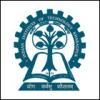How to become a Transportation Engineer
Overview, Courses, Exam, Colleges, Pathways, Salary

Overview
Who is Transportation Engineer ?
A transportation engineer is a professional who specializes in the planning, design, construction, and operation of transportation systems and infrastructure. They are responsible for analyzing and addressing transportation needs, optimizing traffic flow, and improving overall transportation efficiency and safety.
Transportation engineers work on various projects, including roadways, highways, bridges, railways, airports, and public transit systems. They utilize their expertise in traffic engineering, geometric design, transportation modelling, and transportation planning.
These professionals employ technical knowledge to develop transportation solutions considering traffic volume, population growth, environmental impact, and public safety. They may conduct traffic studies, analyze data, and use computer simulations to evaluate design options and propose the most effective and efficient solutions.
Transportation engineers often collaborate with other professionals, including urban planners, architects, and environmental specialists, to ensure transportation systems align with overall urban development plans and sustainability goals.
Typical day at work
What does Transportation Engineer do?
Transportation engineers are responsible for various tasks related to transportation systems and infrastructure. Their roles and responsibilities include:
- Designing and Planning: Transportation engineers develop and design transportation infrastructure such as roads, highways, bridges, and transit systems. They create plans that optimize traffic flow, improve safety, and accommodate future growth.
- Traffic Analysis: They conduct traffic studies and analyze data to understand traffic patterns, identify bottlenecks, and propose solutions to enhance traffic efficiency. Includes optimizing traffic signal timing, determining road capacity, and recommending improvements to alleviate congestion.
- Transportation Modeling: Using specialized software and models, transportation engineers simulate and predict traffic behaviour, assess the impact of proposed projects, and evaluate different scenarios to make informed decisions.
- Safety Assessment: They identify potential safety hazards and develop strategies to mitigate risks, such as implementing safety measures, designing effective signage and markings, and improving visibility at intersections.
- Sustainable Transportation: Transportation engineers work on initiatives to promote sustainable transportation options, such as developing bike lanes, pedestrian-friendly infrastructure, and integrating public transit systems.
- Project Management: They oversee transportation projects, manage budgets, timelines, and resources, and ensure that projects are delivered according to specifications and standards.
Abilities and Aptitude needed
What are the skills, abilities & aptitude needed to become Transportation Engineer?
To become a transportation engineer, certain skills, abilities, and aptitudes are necessary:
- Technical Knowledge: Proficiency in transportation engineering principles, traffic flow theory, geometric design, and transportation planning is crucial.
- Analytical Skills: Strong analytical skills are necessary to interpret data, conduct traffic studies, and analyze complex transportation problems.
- Problem-Solving Abilities: Transportation engineers need excellent problem-solving skills to identify and address transportation challenges like traffic congestion or safety concerns.
- Data Analysis: Proficiency in data analysis, including statistical software and transportation modelling tools, is essential for analyzing traffic patterns and making informed decisions.
- Communication Skills: Effective communication is vital for working in multidisciplinary teams, presenting findings, and collaborating with stakeholders, including government agencies and the public.
- Attention to Detail: Transportation engineers must pay attention to detail to ensure accurate analysis, precise design, and adherence to safety standards.
- Computer Skills: Proficiency in computer-aided design (CAD) software, transportation modelling tools, and traffic simulation software is important for transportation engineering tasks.
- Adaptability: Adapting to new technologies, industry trends, and changing transportation needs is essential for transportation engineers to stay up-to-date and provide innovative solutions.
- Project Management: Strong project management skills are beneficial for overseeing transportation projects, managing resources, and meeting deadlines.
- Collaboration and Teamwork: Transportation engineers often work in teams and collaborate with other professionals, requiring strong interpersonal skills and the ability to work effectively in a collaborative environment.
Pathways
How to become an Transportation Engineer?
Entrance Exam
Entrance Exam for Transportation Engineer ?
Courses
Which course I can pursue?
Best Colleges
Which are the best colleges to attend to become an Transportation Engineer?
Industries
Which Industries are open for Transportation Engineer?
Transportation engineers can find opportunities in various industries and sectors, including:
- Government Agencies: Transportation departments at the local, state, and federal levels employ transportation engineers.
- Consulting Firms: Private consulting firms specializing in transportation planning and engineering offer employment opportunities.
- Engineering and Construction: Engineering firms and construction companies involved in infrastructure projects require transportation engineering expertise.
- Transportation Service Providers: Public transit agencies, airport authorities, and private transportation companies hire transportation engineers.
- Urban Planning and Development: Transportation engineers play a role in urban planning agencies and organizations.
- Research and Academic Institutions: Universities and institutions employ transportation engineers for research and teaching positions.
internship
Are there internships available for Transportation Engineer?
Internships for transportation engineers are widely available and provide valuable opportunities for hands-on learning and professional development. Government transportation agencies, consulting firms, engineering companies, and research institutions frequently offer internships in transportation engineering. These internships allow aspiring transportation engineers to gain practical experience in traffic analysis, transportation planning, design, and project management. Interns work alongside experienced professionals, participate in real projects, and gain insights into the industry. Internships can provide valuable networking connections, enhance technical skills, and offer a chance to apply theoretical knowledge to real-world situations. They can serve as a stepping stone for launching a successful career in transportation engineering by providing practical experience, industry exposure, and a competitive edge in the job market.
Career outlook
What does the future look like for Transportation Engineer?
The future for transportation engineers looks promising as societies continue to face transportation challenges and seek sustainable mobility solutions. With rapid urbanization, technological advancements, and increasing emphasis on efficient transportation, the demand for transportation engineers is expected to grow.
Transportation engineers will play a vital role in designing and implementing innovative transportation systems, integrating emerging technologies, and addressing environmental and societal concerns. The rise of smart cities, autonomous vehicles, and transportation network optimization will require their expertise. Additionally, transportation engineers will enhance safety, reduce congestion, promote multimodal transportation, and improve overall efficiency.
Furthermore, the growing focus on sustainability and the need for resilient transportation systems will create opportunities for transportation engineers to develop eco-friendly and resilient infrastructure. Integrating data analytics, intelligent transportation systems, and transportation modelling will also shape the profession's future.




